‘American Life Altered’ & ‘Toward a New Ethic’
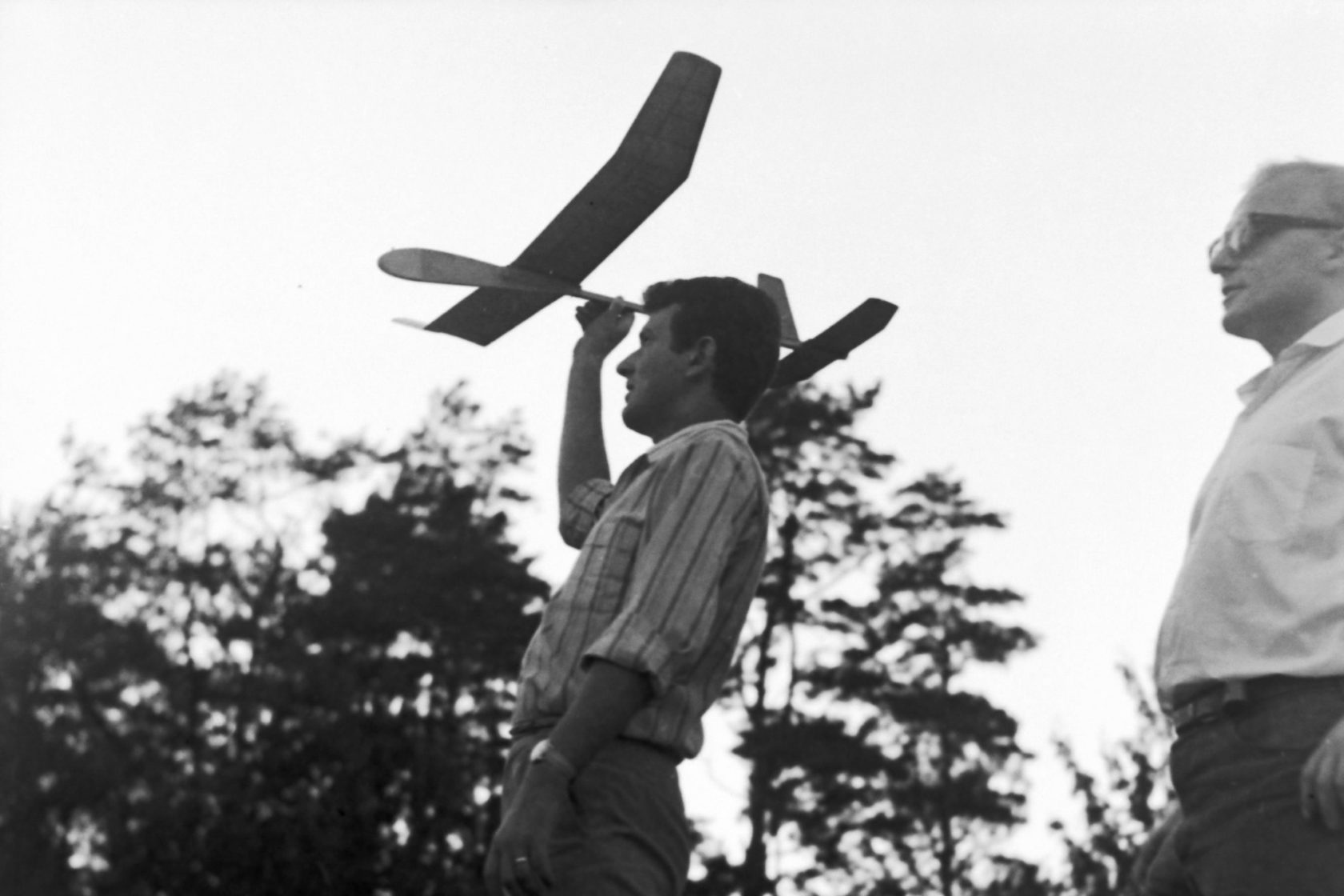
We are barely a few weeks into our crisis and, yes, the worst may be yet to come. There may be value in asking ourselves what changes we hope to affect in the present so that, when we look back on these challenging times ten years from now, we can confidently say that we came out of this crisis better prepared than we went into it. For that reason, in this installment of You’ve Gotta Read, we looked for historical context for the current COVID-19 pandemic, different from the Spanish Flu articles that make all of us even more anxious. Today, two articles about the aftermath of the 1973 OPEC oil crisis make for a strangely familiar read.
Of course, comparing a pandemic to an oil crisis is dangerous—many lives and livelihoods are getting lost as we speak—but many of us are also rapidly learning tasks and finding a renewed appreciation for the simpler pleasures of life. Quite a few of us may be taking this time to revisit how and why we are doing things the way we do.
Many around us are wondering today: was the growth of the last few years even real if it evaporated so easily?
In a way, the questions we are asking ourselves are not so different from those posed in a 1974 New York Times editorial on the OPEC crisis titled: “Toward a New Ethic.” Writing at the tail end of the crisis, the author wonders: “How does a society of more than 200 million persons go about changing its lifestyle?” While the number of Americans is vastly larger these days, the question still stands. Changing our lifestyle, the author suggests, is a question of challenging one of the central assumptions of our culture’s ethos: “Almost every influence in this nation from its history to its advertising encourages belief in unending economic growth and a more prosperous future.” Most likely, many around us are wondering today: was the growth of the last few years even real if it evaporated so easily?
The 1974 piece sounds even more familiar when it goes on to say: “If Mr. Nixon were not a Watergate cripple, the Presidency could provide helpful leadership in focusing attention on the right issues. Under any circumstances, government action at every level, federal, state, and local, will be important in redirecting society from a period of cheap, abundant energy to one of scarce, expensive energy.” Wow—and to think that people feel their time is wasted studying history in school.
Ten years after this first article, another New York Times writer, N.R. Kleinfield, published “American Way of Life Altered by Fuel Crisis.” Drawing on testimonies from Americans across the country, he shows the lasting impact that the oil scarcity and ensuing economic crisis had on daily life over the course of a decade. Kleinfeld describes how the crisis prompted millions of Americans to reshape their relationships with energy in all aspects of everyday life, resulting in simpler and more frugal lifestyles by 1984: “Homes are now cooler in winter and warmer in summer. Many families skip pleasure trips. They squeeze into compact cars and tool along at 55 miles an hour or something like that. Like pioneers, lots of people harvest their own food in backyard gardens.”
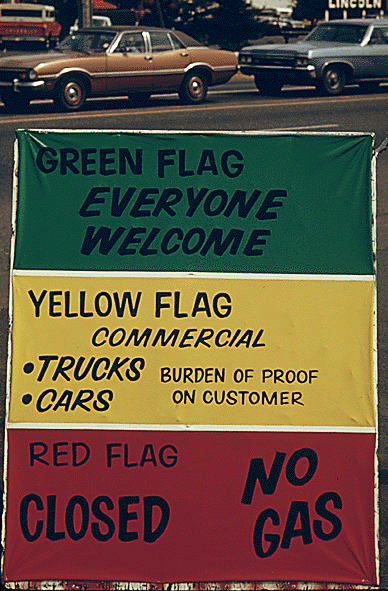 Oregon gasoline dealers displayed signs explaining the flag policy in the winter of 1973–74, Image via wikimedia
Oregon gasoline dealers displayed signs explaining the flag policy in the winter of 1973–74, Image via wikimedia
While his article celebrates an oil crisis-induced simplicity around the U.S. at the time, it can help us now, since Kleinfeld does also question the depth of that change by the end of his article. He quotes Harvard sociologist David Riesman, who feared that the energy crisis actually had not affected Americans enough: “To what extent has the energy crisis affected our general sense of the fragility of the environment, I would say, hardly at all. Our rapacity for the planet earth seems as great as ever before.”
When it comes to making sudden shifts in culture, there is always a tension between the collective effect of individual actions and the necessity for swift institutional and governmental action. A crisis of the scale that we are experiencing today not only disrupts our economic, social, and personal lives, but also soberingly reveals the widespread vulnerabilities that underly our institutions.
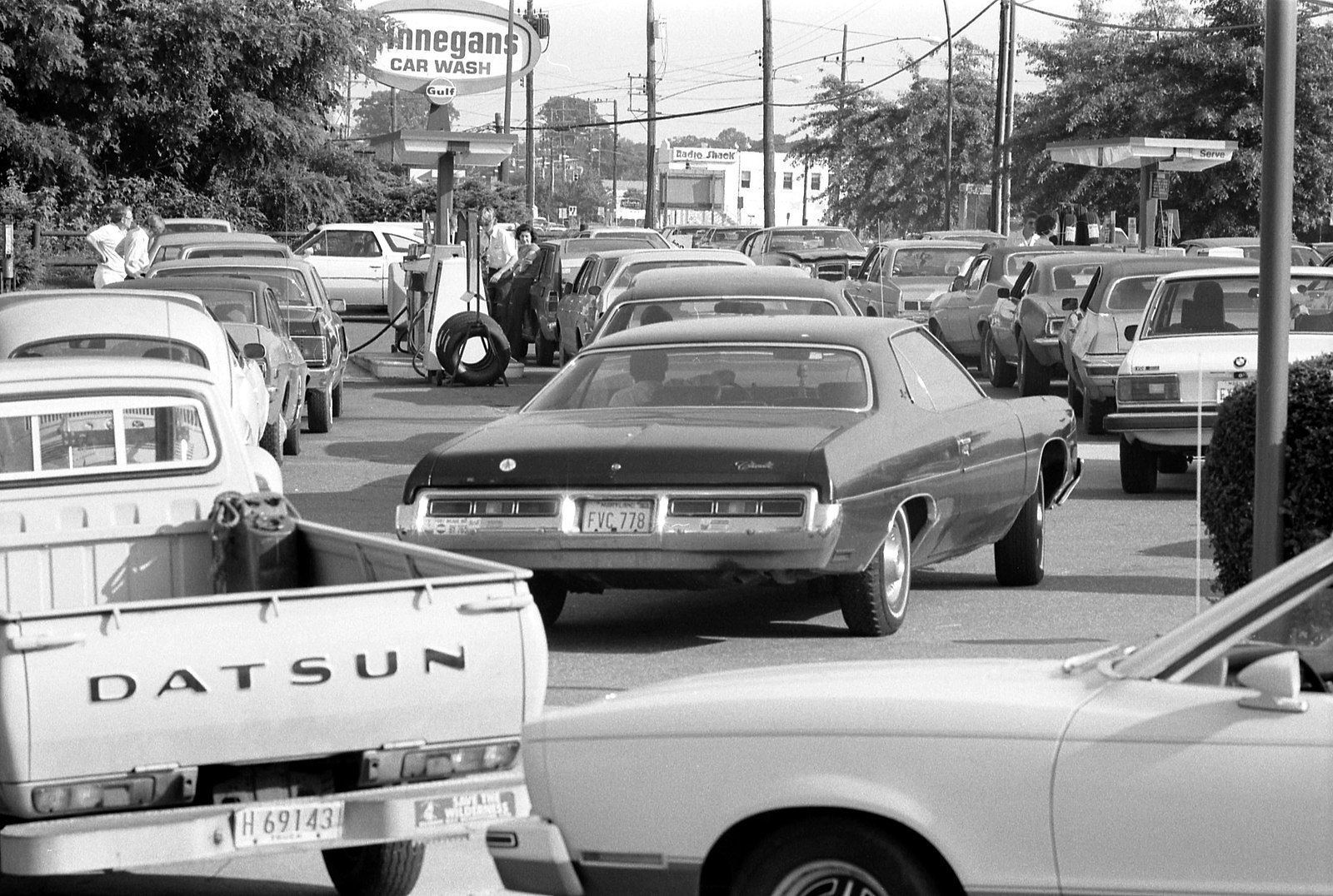 Line at a gas station, June 15, 1979. Image via wikimedia
Line at a gas station, June 15, 1979. Image via wikimedia
As far as institutions go, museums are often thought of as static places, but author and policy researcher Andrew Simms correctly observed that museums “are filled with objects and documents that show how change happens, including the possibility of rapid transitions, whether in response to cultural, political or environmental factors, or war, technology or demography.” Documenting and contextualizing this particular historical moment, will prove to be vital not only in preserving the memory of this moment to (hopefully) help mitigate future health and financial crises, but also in aiding us as we collectively process the lingering fear and grief caused by the outbreak—the missed graduations, the experiences of isolation, the economic hardship, and the loss of family members and friends.
More importantly, many institutions—cultural and otherwise—are undoubtedly taking this moment of panic and unease to re-evaluate what they do, what it means to serve their communities, and what it means to be resilient. While museums and cultural institutions are now closed to the public, many are planning for a potentially different future and, like 1974, many will be wondering “how do we go about changing our lifestyles? And…does it always have to be about unending growth?” If we allow the current crisis to test the compass of institutions, as one of our clients put it, we must be careful not to have to say, yet again in 2030, that the crisis “hardly at all affected any lasting change.”
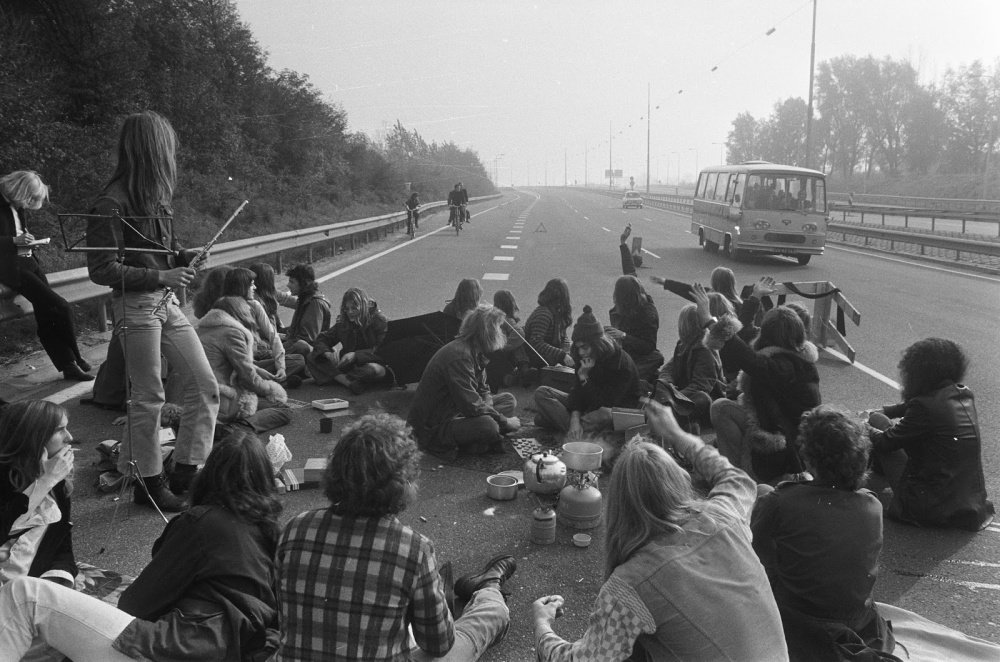

David van der Leer, Principal of DVDL DD, is a consultant, educator, moderator, researcher, strategist, and writer. David’s passion is reinventing the institutions of yesterday—and dreaming up the most inspirational institutions of tomorrow—through excellent architecture and interdisciplinary programs.
David founded DVDL DD in 2018 after having worked and consulted with institutions, government agencies, corporations, and individuals for 15 years. He has extensive experience in bringing together interdisciplinary teams to create successful design projects. David teaches a course called (Re)Programming Museums at Columbia University’s Graduate School of Architecture Planning and Preservation.
David has created, chaired, and led nearly 30 design competitions, and he has commissioned numerous design and art projects. He enjoys rethinking conventional design competition and commissioning processes, and actively promotes new practices in events like the Design Competition Conference he developed and co-chaired at Harvard University in 2015.
Born and raised in The Netherlands, David is a graduate of Erasmus University Rotterdam, and of the High Impact Leadership program at Columbia University’s Business School.
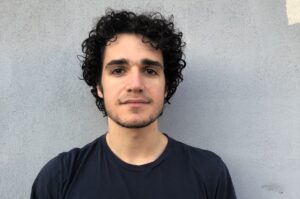
Dan Muro is a Brooklyn-based writer, musician, and researcher. He received his B.A. in cultural anthropology from Wesleyan University in 2017, with a focus on development studies and experimental ethnography. He has since worked for cultural and political organizations across New York City such as Van Alen Institute, New York Civil Liberties Union, and Jamaica Center for Arts and Learning.

